

.png)
Janet Epp Buckingham, Markus Hofer and Gaetan Roy, from the World Evangelical Alliance, speak on behalf of churches at the United Nations in Geneva. What issues do they address?
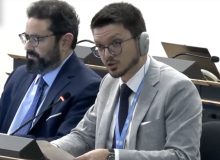
The World Evangelical Alliance urges Turkey “to engage in structured dialogue wit Protestants” and warns of the growing hate speech against Christians.
.png)
The World Evangelical Alliance asks the Spanish government in Geneva to definitively confirm the restitution to pastors who were left without pensions so as to “reaffirm its credibility” before the Human Rights Council.
.jpg)
The United Nations has designated August 22 each year as its International Day Commemorating Victims of Acts of Violence Based on Religion or Belief. This should be an important day on the Christian calendar.
.jpg)
The WEA representative to the UN Human Rights Council urges a solution to the case of a church in Rome and another in Albano Laziale.

Evangelicals submit a report to the UN Human Rights Council, denouncing “cases of abuse of religious freedom, political rights and racism” in Bulgaria.
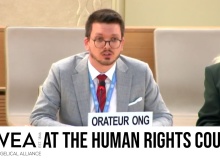
In its address to the UN Human Rights Council, the World Evangelical Alliance proposes better training on religious freedom for state officials and politicians.
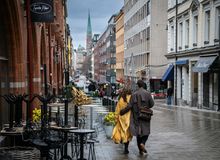
The Swedish, European and World Evangelical Alliances sent a joint report on asylum seekers, conscientious objection, and hate speech, among other issues.
.jpg)
At the United Nations Human Rights Council, the World Evangelical Alliance points out the obsolete procedures through which religious minorities must relate to the State.
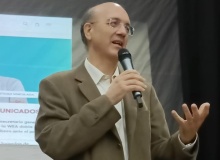
The public image of Spain is damaged by the lack of response to the discrimination of pastors without a pension, explains the secretary general of the Spanish Evangelical Alliance.
Cropped(1).jpg)
An event on the Manipur violence in India organised by the World Evangelical Alliance at the UN in Geneva gets worldwide attention.
.jpg)
Wissam al-Saliby of the World Evangelical Alliance met Victor Madrigal-Borloz and calls for dialogue after a controversial report on religious freedom and LGBT rights.
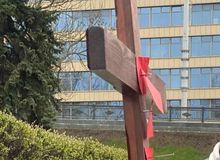
The government prevents Belarusians from complaining about the violations of their rights to the UN Human Rights Committee.
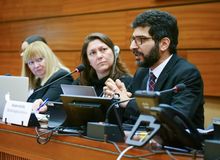
“We are not against sanctions but for human rights”, says the World Evangelical Alliance representative at the UN Human Rights Council.
.png)
Evangelical Christians actively engage in the Human Rights Council of the United Nations, in Geneva. What is their vision? How do they work?
Cropped(1).jpg)
“We regret that Geneva is trampling on its tradition of tolerance and damaging its reputation as a capital of human rights”, says an evangelical representative in the Swiss Canton.
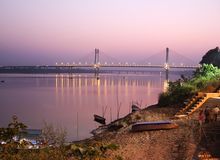
The World Evangelical Alliance sends a report to the United Nations denouncing “how the Indian government has fostered violence and legal discrimination against religious and social minorities”.
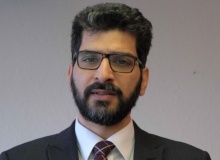
The entity representing 600 million evangelicals calls on Algeria “to end their persecution of evangelicals, rescind the unjust court sentences, and allow the churches forcibly closed to reopen”.
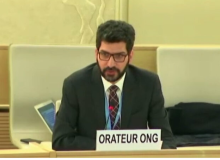
Evangelicals at the UN Human Rights Council also asked the Greek government to look for alternative religious education classes for non-Orthodox students.
.png)
Evangelicals speaking at the UN Human Rights Council also denounced anti-conversion laws in Nepal and India, while praising peacemaking efforts in Lebanon and Colombia.
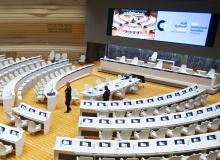
“We stand ready to support a peace and reconciliation process, particularly engaging our regional branch, the Association of Evangelicals in Africa (AEA)”, said Thomas Schirrmacher.
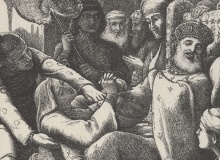
In November, a senior UN official told civil society, “You need to insist, repeat yourself, send letters to the UN, keep reminding us”.
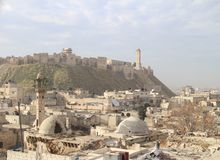
The WEA organised a virtual event to evaluate the impact of unilateral sanctions on churches and aid organizations worldwide and gives recommendations on how to overcome it.
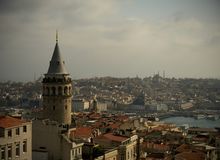
The UN has included the travel bans and deportations of Protestant leaders and the protection of religious minorities in the list of issues to be raised with the Turkish government.
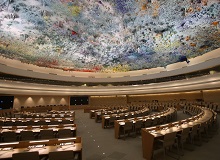
Addressing the Human Rights Council, the UN Expert backs “intersectional gender analysis”. The World Evangelical Alliance says Christians believe “human beings are created male and female” and defends the “freedom to express this belief in the public square”.

Las opiniones vertidas por nuestros colaboradores se realizan a nivel personal, pudiendo coincidir o no con la postura de la dirección de Protestante Digital.